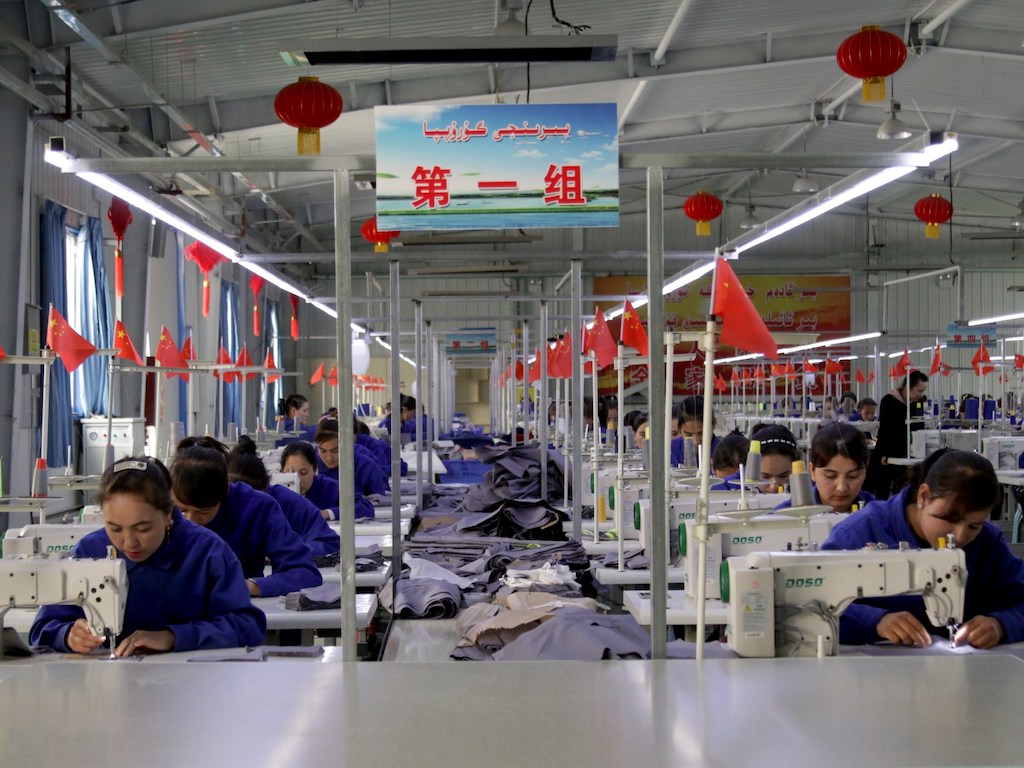3 Mins Read
Some of the world’s largest fashion houses and retailers are complicit in human rights abuses and forced labour being carried out against the Uighur minority Muslim people in the Xinjiang region of China, says a coalition of human rights organisations. According to the coalition, as many as one in five cotton products sold across the world are implicated in the human rights atrocities committed in internment camps in the region.
Coalition to End Forced Labour in the Uyghur Region, endorsed by over 200 human rights groups, has warned that many of the leading fashion brands are continuing to source cotton and yarns produced through a state-sponsored system of forced labour. Up to 1.8 million Uighur and other Muslim minorities are detained in prison camps, factories and farms in the Xinjiang region of China, in what the group calls the largest internment of an ethnic and religious minority since the Second World War.
The warnings come amid growing global outrage over evidence of atrocities committed against the Uighur population in Xinjiang, which include forced separation, torture and involuntary sterilisation against women.
Virtually the entire apparels industry is tainted by forced Uighur and Turkic Muslim labour.
Coalition to End Forced Labour in the Uyghur Region
The coalition says that global fashion houses source the vast majority of their materials from the region, making it “virtually certain” that almost one in five cotton products sold worldwide are implicated in these human rights violations. It is estimated that 84% of cotton coming from China, the world’s largest cotton producer, is made in Xinjiang.
Among some of the brands the coalition claims to have continued to source from the region despite these shocking findings include Gap, Adidas, Muji, Uniqlo, Tommy Hilfiger and C&A. Other fashion brands may be complicit because they maintain lucrative partnerships with Chinese firms that have benefited from the forced labour camps.
“Virtually the entire apparels industry is tainted by forced Uighur and Turkic Muslim labour,” said the human rights organisations in a statement.
Calling on the global apparel industry to eradicate all products and materials linked to the forced labour in Xinjiang, the coalition says that one of the biggest challenges that lie ahead is ensuring a credible way of proving that supply chains from Xinjiang region are free from human rights abuses.
“Forced labourers in the Uighur region face vicious retaliation if they tell the truth about their circumstances,” Scott Nova, executive director of the U.S.-based Worker Rights Consortium (WRC), told the Guardian.
“This makes due diligence through labour inspections impossible and virtually guarantees that any brand sourcing from the Uighur region is using forced labour.”
It marks yet another blow for the fashion industry, which has over the coronavirus crisis, been accused of worker exploitation and cancelling orders from factories in Asia that have either been completed or already in the manufacturing stage, taking away income from garment workers that are already disproportionately affected by the pandemic.
This makes due diligence through labour inspections impossible and virtually guarantees that any brand sourcing from the Uighur region is using forced labour.
Scott Nova, Executive Director of WRC
Fashion has also come under negative spotlight in recent years due to its enormous environmental footprint, from accounting for 10% of global carbon emissions to 20% of global wastewater and a truckload of textiles being landfilled every single second.
The coalition’s call for action follows the United States’ moves to economically pressure China over the issue. Earlier this month, sanctions were imposed against Chinese officials in charge of the region and American border authorities seized a shipment of 13 tonnes of hair products said to have come from Xinjiang.
A number of suppliers have also been blacklisted by the U.S. Commerce Department, including the Esquel Group, a Hong Kong-based shirt manufacturer for brands such as Lacoste.
Lead image courtesy of Shutterstock.




